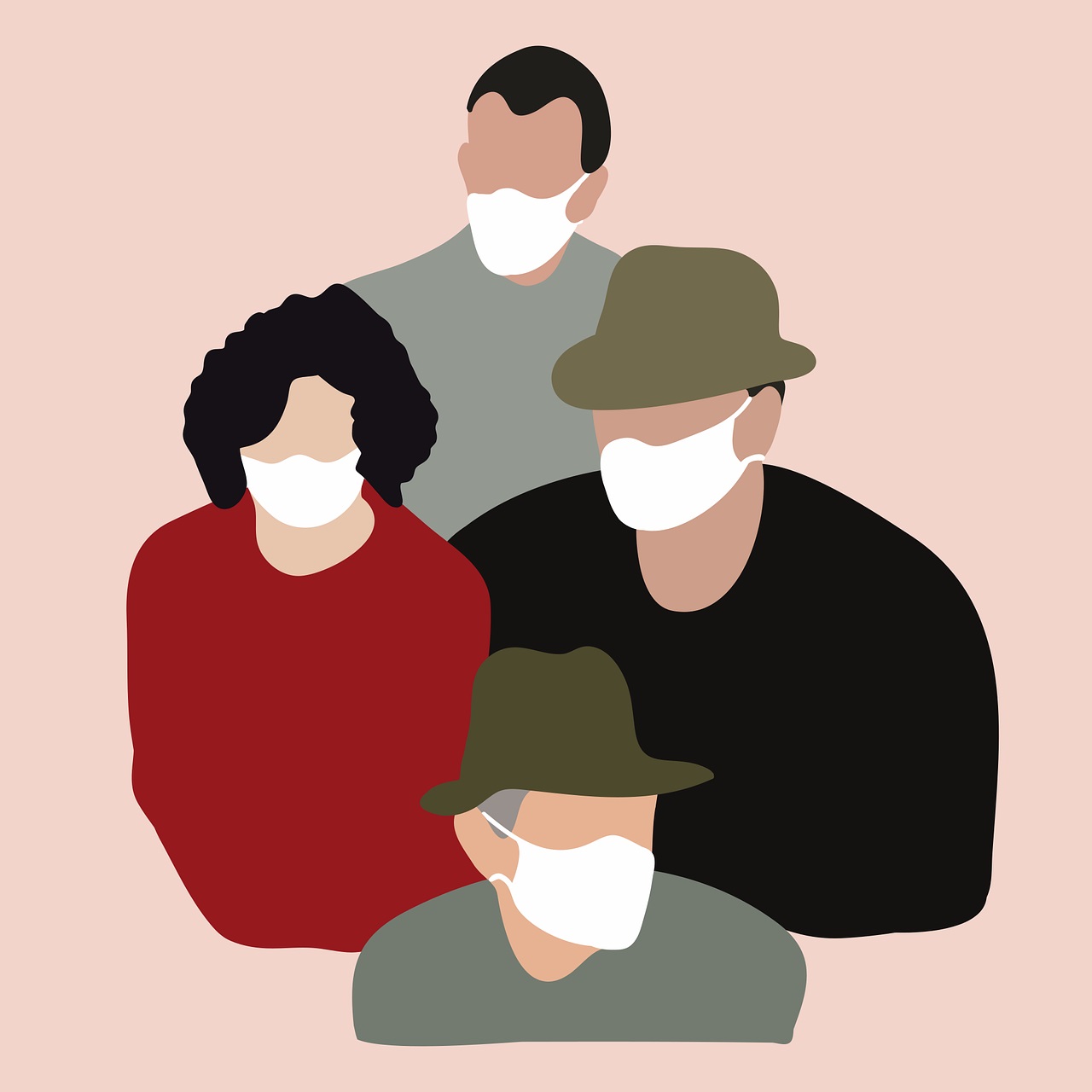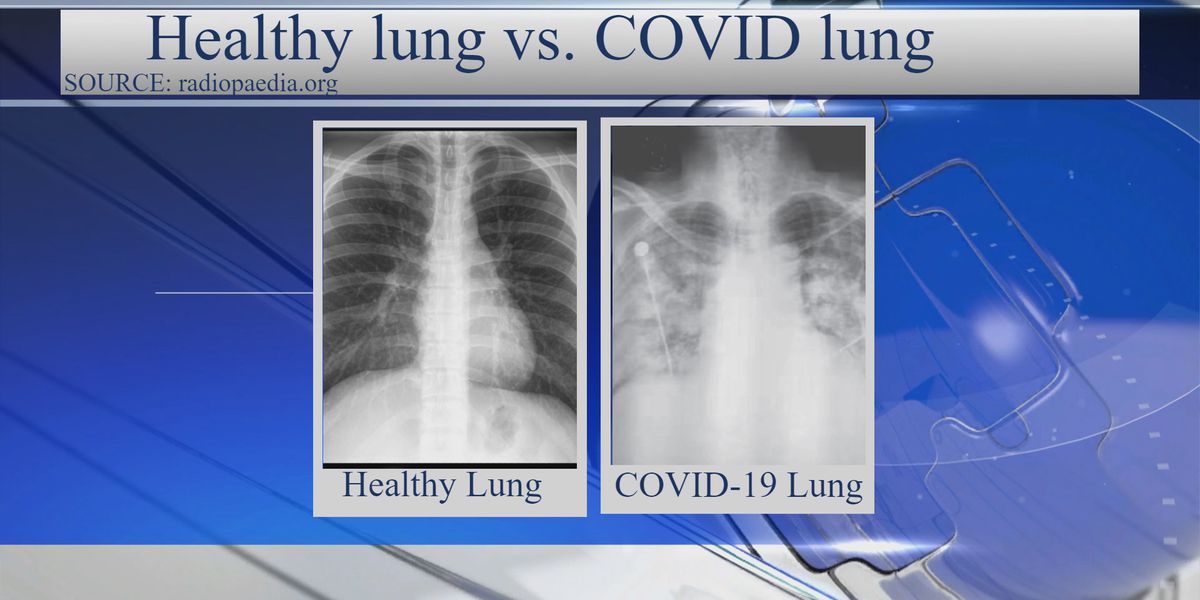Lungs During and After Infection of SARS CoV-2/COVID-19
- /
- COVID-19

COVID-19 is a disease that mostly affects our respiratory system, as this disease can cause long-lasting lungs damage. The mechanism of SARS-CoV-2 lung infection is heavily studied and more and more information is being supplied every day. The urgent question is how COVID-19 affects lungs during and after infection. Infection caused by the new coronavirus can affect our lungs and lead to pneumonia and in the most severe cases it ends with acute respiratory distress syndrome (ARDS) making patients require mechanical ventilation.
Pneumonia
In case of pneumonia, lungs are filled with a fluid, which causes inflammation and results in breathing difficulties. Limitation of oxygen supply causes shortness of breath, cough etc. In very acute cases there is a need for hospital treatment where patient is supplied with oxygen or is mechanically ventilated. Normally, people who recovered from pneumonia do not have any lung damage afterwards achieving full recovery, but in case of pneumonia associated with COVID-19 complications may be severe. World Health Organization claims, that recovery time is around two weeks for mild infection and three to six weeks for severe disease. However, this depends on a patient’s pre-existing condition and sometimes it can take couple of months.
Lung damage risks
There are three main factors contributing to severe COVID-19 infection. Those are important for the assessment of patient’s recovery and regaining of lung function. First is severity of the infection. People who have mild symptoms during coronavirus infection are less likely to develop long- lasting scars in the lung tissue and their recovery is quicker. Second factor is your overall health condition. If you already have existing health problems, with your lungs or heart, the risk of severe infection is rising. People of 60 years of age or above are also more vulnerable because their lung tissue and overall immunity usually worsens with age. The third important thing is the treatment. The quicker you react and take care of your health the smaller is the damage. Properly identified and treated infection can go a long way and totally turn around the course of illness.

picture source: wlox.com
Is the damage reversible?
Like with every disease, recovery takes time. When COVID-19 hits hard and does a lot of damage we cannot expect that everything will be back to normal after one day or even one week. Doctors say that it can take up to one year for lung tissue to fully recover from coronavirus infection.
Can you do something to lessen the damage?
People who have chronic medical conditions, such as diabetes, chronic obstructive pulmonary disease or problems with their heart, must take care of proper care of their illnesses. They should take their prescribed medications and monitor blood sugar, blood pressure and fluid status etc. It is also important to eat healthy foods, stay hydrated and take good care of ourselves. Lungs are really exposed to COVID-19.
See also: “3 Important Advices to Help You Avoid COVID-19 Infection“
What can you do if you suspect occurring infection in yourself?
As stated before, the vast majority of people will only experience very mild symptoms, if any, due to COVID-19 disease. They can last for a few days, up to a week. Treatment in such examples includes rest, proper feeding, hydration and pain relievers. However, if you suspect that you do develop the disease one should contact a physician and follow given recommendations.
If during the first days of disease your condition will subsequently worsen and you suspect trouble breathing, chest pain or pressure, confusion, blue pigmentation of lips and face and severe exhaustion DO NOT hesitate to notify emergency authorities, as the specialized medical attention may be required.
Protect yourself and others if you are ill
If you identify symptoms of COVID-19 in yourself, to avoid the further spread of the disease to your loved ones and in your nearest community you should stay home from work, avoid public gatherings and stay isolated from your family by straying from shared spaces and keeping their proper ventilation. If contact is necessary, one should wear a face mask and if needed wear disposable gloves or disinfect hands with liquid containing at least 70% alcohol. After the contact, proper thing to do is safely dispose of used masks and gloves to prevent: i) spreading the virus by contact with contaminated surfaces and ii) prevent fungal infection by disposable material reuse without prior proper cleaning.
Maintain your mental health during isolation
Even if you are infected you should not stray from remote contact with your friends and family. During self-isolation you may feel lonely and this can lead you to depressive disorders. They can also affect your eating, give you malaise and insomnia. To counteract this one should maintain your daily routine things, like eating, hygiene and getting dressed. DO NOT overwhelm yourself with COVID-19 news. Take up new hobbies, discover new talents, focus on what brings you joy. Connect with others as far as it is possible. Proper handling of mental well-being may have an enormous beneficial effect on the course of illness.